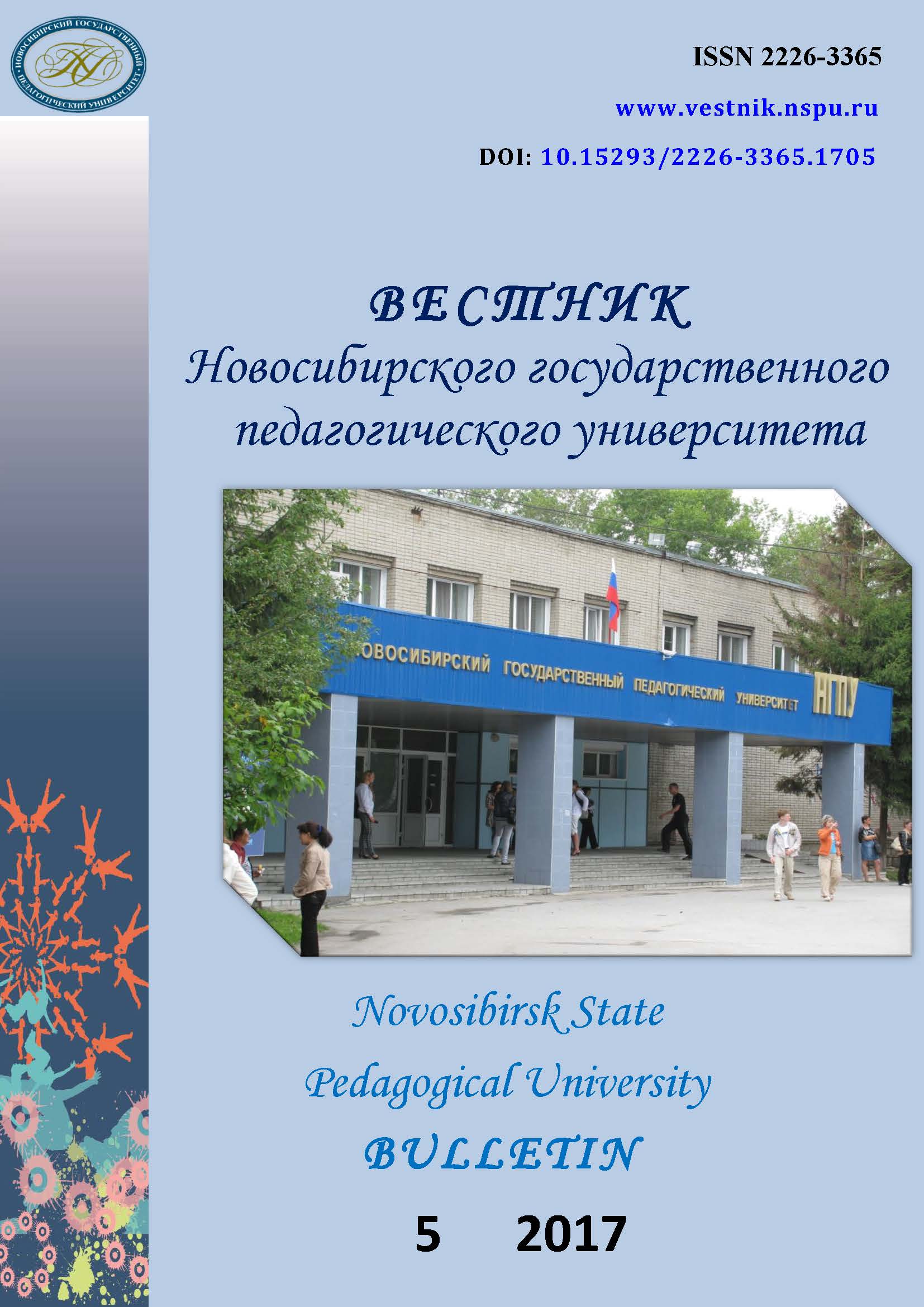Реализация дидактической модели подготовки студентов к новаторству в процессе непрерывного образования будущего учителя
Implementation of the didactic model of preparing students for innovative practice within the framework of continuing teacher education
Author(s): Roman Sergeevich Nagovitsyn, Yuri Gennadievich Maksimov, Aleksey Anatolievich Miroshnichenko, Svetlana Jurgenovna SenatorSubject(s): School education, Higher Education
Published by: Новосибирский государственный педагогический университет
Keywords: Didactic model; Innovative practice; Components; Student; Continuous education; Preparing students for innovation
Summary/Abstract: Introduction. A considerable amount of scientific literature has been published on the issues of competence-based approach to higher education, but the creation of a didactic model of continuing preparation of students for innovative practice has not been implemented to date. Therefore, the purpose of the article is to develop a didactic model of preparing students for innovation by means of identifying its main components and to prove experimentally the effectiveness of its implementation in the process of continuing education of perspective primary school teachers. Materials and Methods. The study is based on the systematic approach, the implementation of which, in conjunction with competence-based, action, qualimetrical, personality-oriented and innovative approaches, provides a higher quality level through the integration of different clusters, components and innovative technologies of continuing education. The solution of research problems was ensured by a set of complementary theoretical methods on the analysis of domestic and foreign educational theory, practice and experience in the field of innovation. Moreover, the authors relied on such general scientific methods as classification, modeling, comparison, and generalization. Experimental methods involved diagnostic tools, statistical processing and expert assessments. Results. A didactic model of preparing students for innovation as a basic, fundamental core in the structure of continuing education of primary school teachers, integrating resources and scientific and educational potential of further and higher education has been developed. The main components and their detailed characteristics are presented: motivational, cognitive, reflexive and operational. The effectiveness of educational process emphasizing special training for innovative practice is experimentally proved. Conclusions. The practical significance of the study is as follows: the presented didactic model allows to reach a higher quality level of initial teacher training which contributes to the preparation of innovative educators. The proposed statements and conclusions create prerequisites for further study of the phenomenon of the implementation of innovative practices within continuing teacher education with the main focus on methodological, content and organizational aspects. The presented practical experience of implementing the didactic model can be used by other educational settings for creating professional environment.
Journal: Вестник Новосибирского государственного педагогического университета
- Issue Year: 7/2017
- Issue No: 5
- Page Range: 7-24
- Page Count: 18
- Language: Russian

